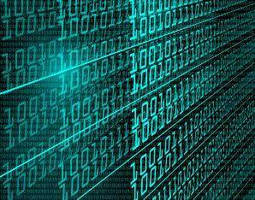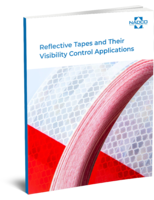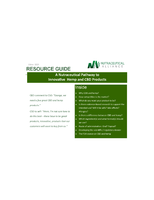Emerging Trends in Data Logging - A Look at RFID Technology

Product-Tracking Technology Revolutionizes Data Collection
CHESTERLAND OH - Every day, CAS DataLoggers offers customers our temperature monitoring and alarming solutions for use in a wide range of industries. With this in mind, let's take a look at Radio Frequency Identification (also known as RFID, smart labels, or smart tags) and its increasing use in tracking inventory, equipment and even biometrics. We'll analyze this emerging data acquisition trend and how it's already challenging more conventional products over a wide variety of tracking applications.
RFID tags wirelessly send their data via radio-frequency electromagnetic fields, sending an ID number when scanned. Scanning devices don't need a line of sight to detect RFID tags, which are attached or embedded in the tracked product. In this way, users can remotely track and identify shipments and products in many industries including food and agriculture, healthcare, and transport/logistics.
RFID technology is especially proliferating in the supply cold chain, the logistic obstacle course which temperature-sensitive food and life science products travel from the manufacturer to the consumer. As cited by Refrigerated Frozen Foods, a new study from The Freedonia Group, Inc., a Cleveland-based industry market research firm, found that market demand for food safety products in the U.S. is expected to increase 7.3% annually to $4.5 billion in 2016.
The study points to heightening regulatory compliance and industry initiatives as motivations for companies to invest in new food safety technology. Of these, 'smart' labels and tags (RFID devices) are forecast to be among the fastest gains in major food safety product markets as part of a growing industry trend toward supply cold chain transparency and asset tracking. Widespread adoption in food packaging will reduce perishable food waste, and RFID will also extend to the livestock market as receivers use it to trace animals to their point of origin. The proliferation of software and tracking systems are also expected in light of increased electronic documentation demands from the FDA and other government bodies.
Additionally, food processing plants form the largest RFID market for cold chain monitoring, accounting for 60% of U.S. food safety product demand over 2011. Big gains are likewise anticipated for diagnostic products in meat applications to meet regulatory demand from new microbiological testing. This need for product safety can only increase owing to globalized food supply concerns.
Far from being limited to use in the supply chain, RFID technology is also being readily adopted in other fields including the entertainment industry, with Disneyland being a successful early adapter. USA Today has reported that the Disneyland Resort now incorporates RFID tags into all their costumes, including those for staff at Disney's Grand Californian Hotel, to streamline the costume checkout process and to allow effective tracking of costume pieces that could otherwise go missing or damaged. Disney also provides guests with RFID-embedded room keys and wristbands used to open doors, track attendance at safety drills, and to sort photos.
Reportedly, several of Disney's operations will soon integrate location-based, RFID and NFC (Near Field Communication based on RFID) technology in their 'Next Generation' devices. Disney will then have the ability to collect and view data from RFID-equipped Resort employees.
As a more unconventional example, Barcelona's Baja Beach Club made world news in 2004 when it began offering clients a subdermal microchip which grants access to VIP lounges and automatically runs up their bar tabs by accessing a database when scanned by staff. Manufactured by the VeriChip Corporation, the chip is contained in a small glass capsule sending out a very low range radio frequency to avoid setting off security systems.
In the near future, RFID devices are predicted to be widely adopted by vendors, hospitals, rescue organizations and in many other areas where real-time data is critical. This is definitely an emerging technology worth watching, with long-term benefits for your business or organization. CAS DataLoggers Technical Support Engineer Terry Nagy comments on RFID's growing popularity: "We have customers in shipping and pharmacy manufacturing who need to show their receivers that their product stayed in temperature spec for the whole trip, and RFID gives them a low-cost way to prove it. This tech is convenient, portable, and easy for drivers to use, so we expect to supply RFID solutions to many different markets as the demand increases."
CAS Dataloggers has the most comprehensive selection of data logging equipment available anywhere. Our data loggers are used in a wide variety of remote monitoring applications including cold chain integrity, pharmaceutical manufacturing and storage, asset tracking, and more. To learn more about our temperature monitoring and alarming technology, including wired and wireless solutions for your business or organization, or to find the ideal product for your application-specific needs, contact a CAS Data Logger Applications Specialist at (800) 956-4437 or visit the website at www.DataLoggerInc.com.
Contact Information:
CAS DataLoggers, Inc.
12628 Chillicothe Road
Chesterland, Ohio 44026
(440) 729-2570
(800) 956-4437
sales@dataloggerinc.com
www.dataloggerinc.com




